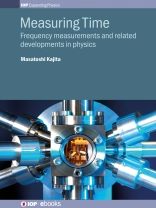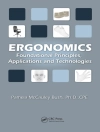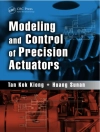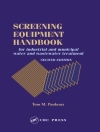This fascinating book recounts the importance of precise measurements and their inherent uncertainty, before telling the story of humankind’s efforts to define and measure time with increasing accuracy and the effect this has on science. The effort to master time culminated in the development of modern atomic clocks. The most accurate clocks ever constructed. These advanced devices are accurate to one second in 15 billion years and now act as the primary standard for time and frequency measurement. Our improvements in the accurate measurement of time have played a pivotal role in the development of modern science, including the confirmation of Einstein’s theory of relativity and the recent detection of gravity waves. Furthermore, the precise measurement of time and frequency afforded by atomic clocks, and other mechanisms, is being used to examine key questions about the fundamentals of our universe, such as the possibility of symmetry violation or the idea that there may be variation of the fundamental constants over time.
Tabela de Conteúdo
1. Standards of physical quantitles
2. Historical role of precision measurements of time and frequency for the development of physics
3. Fundamentals of atomic clocks
4. Role of precision measurements in future developments in physics
5. Role of atomic clocks
6. Conclusion
Appendix: Laser cooling
Sobre o autor
Born and raised in Nagoya, Japan, Dr Kajita graduated from the Department of Applied Physics, at the University of Tokyo in 1981 and obtained his Ph. D. from the Department of Physics, at the University of Tokyo in 1986. After working at the Institute for Molecular Science, he joined the Communications Research Laboratory (CRL) in 1989. In 2004, the CRL was renamed the National Institute of Information and Communications Technology (NICT). In 2009, he was guest professor at the Provence Universite, Marseille, France.












